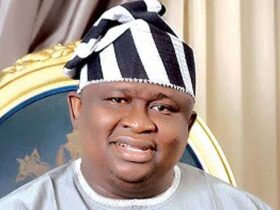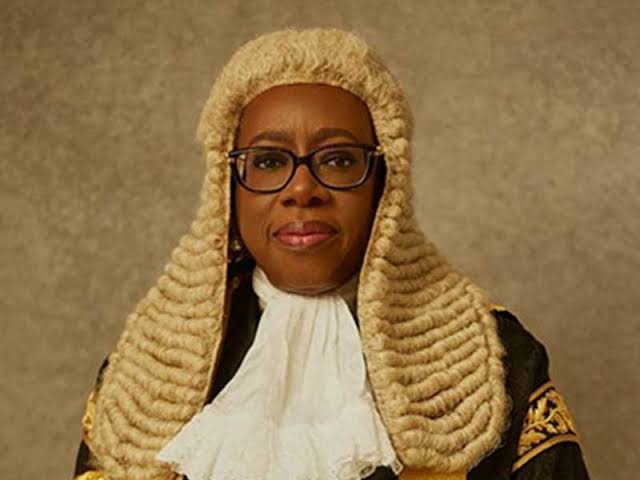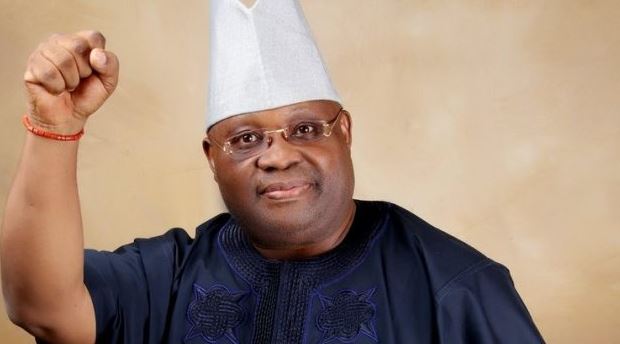…Obedience to court orders is non-negotiable
The newly sworn-in substantive Chief Justice of Nigeria, Justice Kudirat Motonmori Olatokunbo Kekere – Ekun said on Monday at her first public function that “this is a new dawn and a new era in the Nigerian Judiciary.
“I wish to assure my fellow Nigerian citizens that we are committed to working more diligently to improve public perception of the Nigerian Judiciary.”
She made the pledge at the Supreme Court 2024/2025 new legal year ceremony which took place few hours after she was inaugurated as the 23 chief Justice of Nigeria and 19 indigenous CJN by President Bola Ahmed Tinubu
she said that over the years, various factors have contributed to the negative image of the judiciary. “However, we are determined to change this narrative and make the judiciary a source of pride for all Nigerians.”
When the legal compass of a nation falters, everything suffers, including public and international perception.
“The attitude of some of us in the justice sector is sometimes less than salutary, and that has, to a large extent, contributed to the current image deficit of the country’s legal system. Forum shopping by some of our legal practitioners is rampant. It is such acts that often give rise to the emergence of conflicting orders by courts of coordinate jurisdiction.
” I would like to state clearly that henceforth, there will be consequences for any act of indiscretion that could bring the judiciary to disrepute. We have rules and ethics guiding the practice of our noble profession, and we must work assiduously to abide by them and always do what is right in the eye of the law.
Justice Kekere-Ekun said that under her leadership, “the judiciary will adhere to the principles of honesty, transparency, and integrity. I call upon all judicial officers and members of the Bar to join me in achieving this goal,”
The independence of the judiciary is always a topical issue , he said. But let me categorically state that the Nigerian judiciary is largely independent in conducting its affairs and rendering decisions without interference.
At the Supreme Court, for instance, our judgments are free from external influence. While it is essential for the judiciary, as the third arm of Government, to maintain good working relationships with the executive and legislative branches, this should not be misconstrued as subservience.
She said it is imperative for the Judiciary to uphold the tenets of the Constitution, which remains the supreme law of the land.adding that the rule of law, which is the cornerstone of every functional democracy worldwide, should be strictly adhered to in all our undertakings.
“We must emphasize the importance of this principle to citizens at all levels, encouraging them to actively walk the path of legality and justice.The rights of every Nigerian must be vigilantly safeguarded against oppression and impunity, utilizing the full array of legal instruments at our disposal.
” Furthermore, obedience to court orders is non-negotiable. No individual or institution, irrespective of their standing, will be permitted to treat the judgements of our courts with levity or disregard. The Judiciary stands resolute in ensuring that the sanctity of our legal decisions is upheld.”
“All hands must be on deck in fostering an unwavering commitment to the full enthronement of the rule of law. Disobedience to court orders or non-compliance with judicial directives is a direct affront to democracy and an invitation to anarchy,” she warned.
It is critical that we respect and observe all the features of an enduring democracy, for in doing so, we maintain the delicate balance that sustains our society. Let us, therefore, work collectively and tirelessly to ensure that Nigeria continues to abide by the rule of law, upholds the best democratic practices, and remains vigilant in the protection of her citizens’ rights, she added.
Last legal year, the Supreme Court handled 1,124 cases, invoking both its appellate and original jurisdiction. These included 435 Civil Appeals, 269 Civil Motions, 219 Criminal Appeals, 102 Criminal Motions, 89 Political Appeals, and 10 Originating Summons.
A total of 247 judgements and rulings were delivered, including 74 Political cases, 92 Civil cases begun by Originating Summons, and 81 Criminal cases. She described the record as a remarkable success and attributed it to the dedication and teamwork of her fellow Justices and court staff.
The Supreme Court of Nigeria remains one of the busiest in the world, a testament to the upsurge in litigation, which has kept our docket full, she said.
Attorney General of Federation and Minister of Justice Prince Lateef Fagbemi SAN pledged Federal government of committment to uphold the rule of law and advance the cause of justice.










